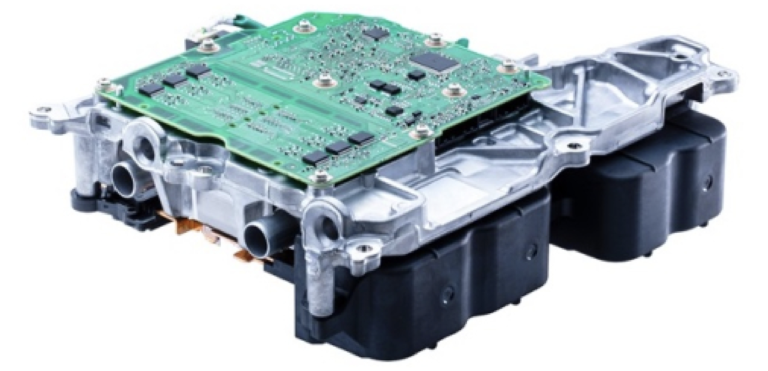Denso has created its first inverter with silicon carbide (SiC) semiconductors, which will be integrated into the eAxle, an electric driving module developed by the BluE Nexus Corporation for the new Lexus RZ – the OEM’s first dedicated BEV model.
SiC power semiconductors can considerably reduce power loss compared with silicon (Si) power semiconductors. The results of a cruising test conducted under specific conditions by a BEV using SiC semiconductor inverters showed that inverters with SiC power semiconductors reduced power loss to less than half compared with inverters using Si semiconductors. The energy efficiency of BEVs is therefore enhanced and cruising range extended.
When used within SiC power semiconductors, Denso’s trench-type metal-oxide-semiconductor (MOS) structure enhances the output per chip as the components reduce power loss caused by heat generation. The company’s proprietary structure achieves high voltage and low on-resistance operation.
Based on technology collaboratively developed by Denso and Toyota Central R&D Labs, Denso uses SiC epitaxial wafers that incorporate the results of work commissioned by the New Energy and Industrial Technology Development Organization (NEDO). This has enabled the company to halve the number of crystal defects that prevent the device from operating normally due to the disordered atomic arrangement of the crystals. Reducing these crystal defects increases quality and ensures stable production.
Denso’s SiC technology is called Revosic. It is being used by the company to develop everything from wafers to semiconductor devices and modules, including power cards.


